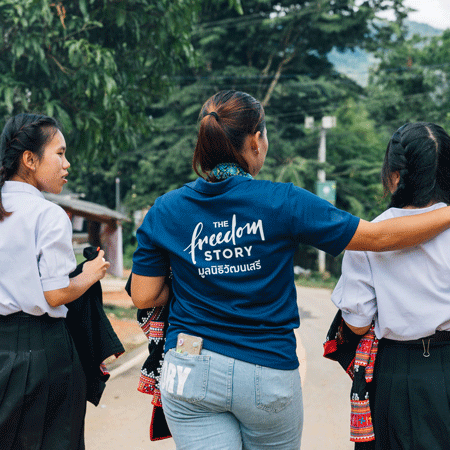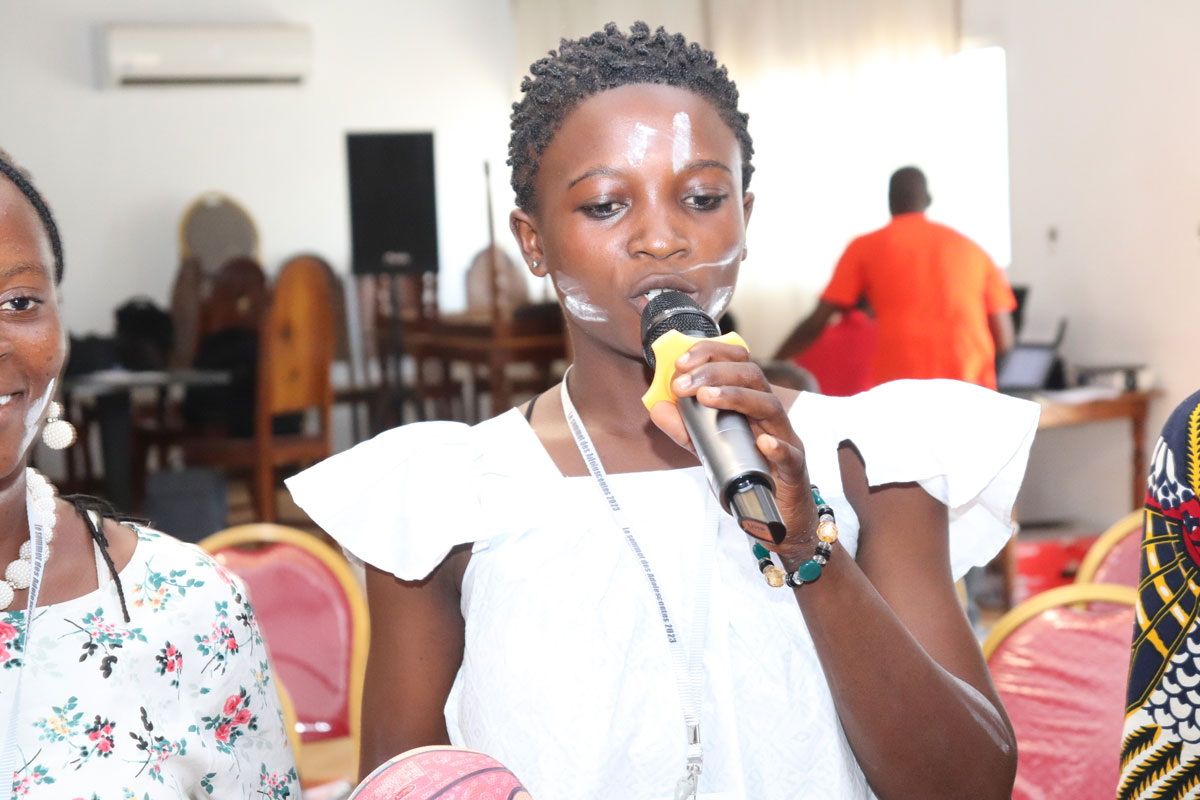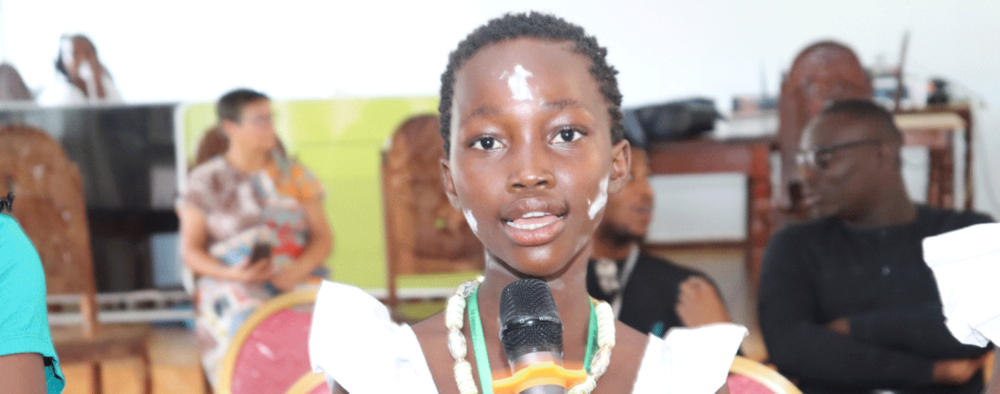
Safety and wellbeing
Safety and wellbeing
Editor’s note: This blog post was compiled by Omale Ojochide Joy, age 17, who is a member of the Adolescent Influencers Movement in Nigeria, and Amé Atsu David, Regional Co-Director for Africa at Global Fund for Children.
With the second West Africa Adolescent Girls Summit scheduled to take place March 26–29, 2024 in Monrovia, Liberia, we members of the Adolescent Influencers Movement aim to create a space for open dialogue and reflection on the complex and sensitive issue of female genital cutting (FGC). The diverse perspectives shared by adolescents in this blog offer a window into the intricacies of cultural traditions, their impact on individuals, and the evolving attitudes toward this practice. We encourage readers to approach these narratives with empathy and an open mind, recognizing the importance of respectful discourse in fostering understanding. It is our hope that these reflections can contribute to a broader conversation surrounding the future of this practice and the wellbeing of all adolescent girls.
“This practice should end because it causes harm to females when they are growing or grown up. For instance, when a girl goes through this practice, it can be very difficult for her to give birth [depending on the type of FGC] when she grows up.”
“For us in Sierra Leone, female genital cutting is still practiced. As a matter of fact, the initiators are now performing the practice during the holiday periods because they know that it is the period when girls won’t be in school and they can get lots of them into the bush. To end this harmful practice against women and girls in Sierra Leone, we the girls as well as some boys at Women Against Violence and Exploitation in Society (WAVES) in Sierra Leone have joined hands as advocates in campaigning to end FGC in our country. We use different strategies, such as engagement with our peers, stakeholders, the secret society leaders [those performing the practice], elders in some communities, and parents. We also go to radio stations to create awareness among everyone about how harmful the practice is and how it affects girls and women throughout their lives. As advocates, we will not stop advocating until we see the end of the practice.”

“I think our ancestors practiced this culture because they were unaware of the negative health consequences due to lack of education. We should not be like them, since we’re now educated and we know that it’s harmful. We can still have a culture without FGC.”
“Girls are being cut because the bondo [sending girls into the bush to be cut] is now all about money. They are not teaching or doing the right thing anymore.”
“I believe that female genital cutting is a harmful practice that should be eliminated. It causes long-term physical and psychological harm to women and girls. It is important to respect cultural traditions, but not at the expense of human rights and wellbeing. The other thing that is a lot more disheartening is that it’s no longer done in the bush but now in the center of towns, which of course is no more about the culture. I am convinced that it’s no longer about culture but about people using it as a means of getting money.”
“If FGC must stop, then it must stop. There should not be an alternative for the practice, like taking the girls to the bush but not cutting them. If the discussions in the bush are beneficial to the girls, then they should be taught in schools and added to the school curriculum. In that way, both genders are able to learn.”

“This practice should be ended because it causes many harmful things to females when growing up. When a girl goes through this process, it can not only be difficult when giving birth but can also lead to bleeding, death, early sex, and even child marriage.”
“Zero tolerance for female genital cutting reflects a global commitment to eradicate this harmful practice. We must emphasize the unequivocal stance against any form of FGC, recognizing it as a violation of human rights and a threat to the wellbeing of women and girls.”
During the Adolescent Girls Summit, adolescent girls and boys will have the opportunity to engage in further discussions about the issue of female genital cutting. By bringing together stakeholders such as policy makers, community leaders, and young leaders, the summit aims to foster dialogue, collaboration, and collective action to address the root causes of FGC. This dialogue is essential for raising awareness, engaging communities, advocating for policy change, and empowering girls and boys to speak out and seek help if they or someone they know is at risk.
Header photo: A young person speaking at the Adolescent Girls Summit for French-speaking youth. © GFC
